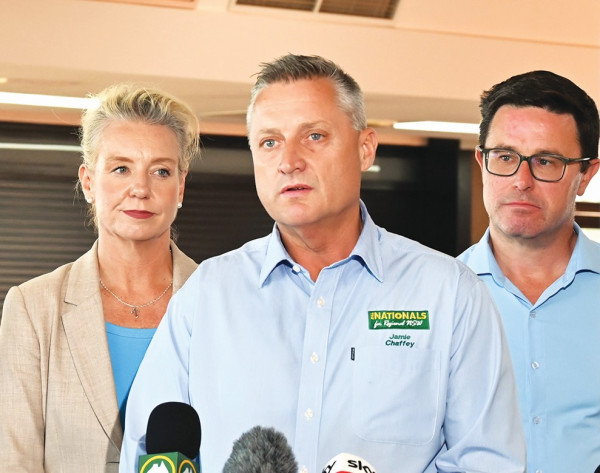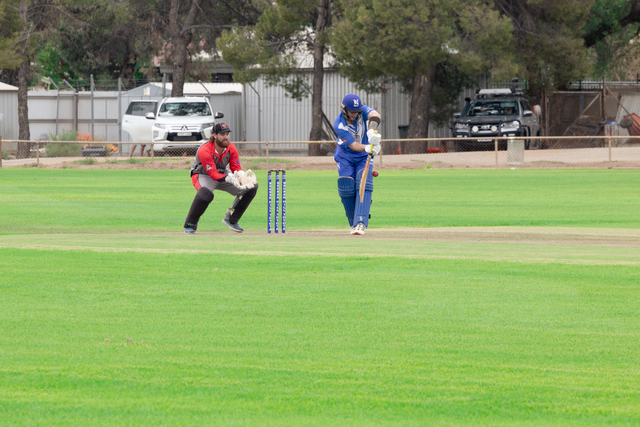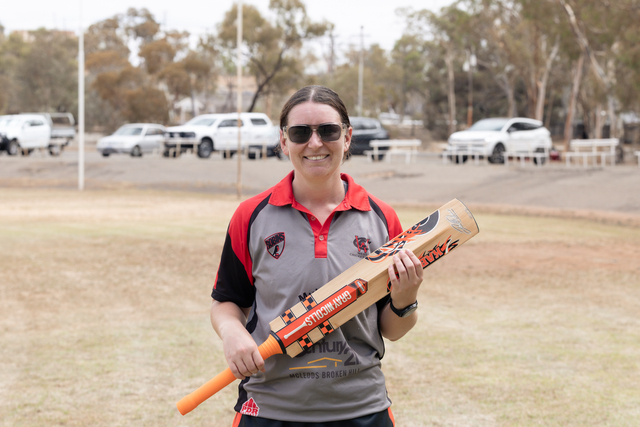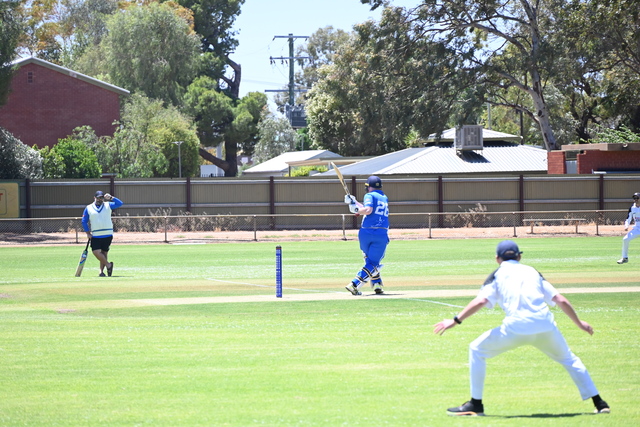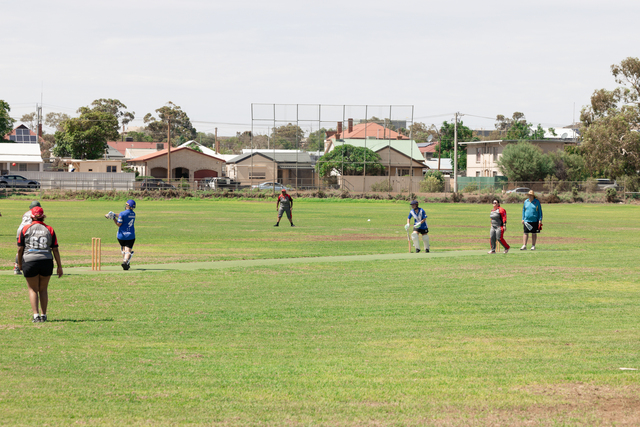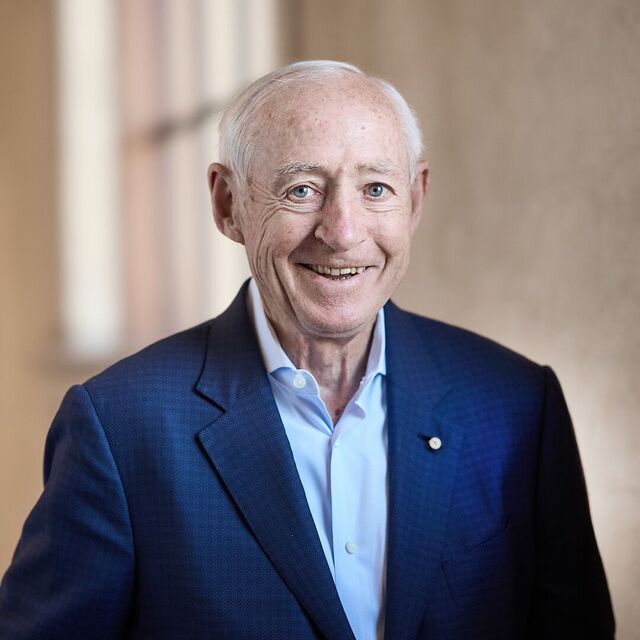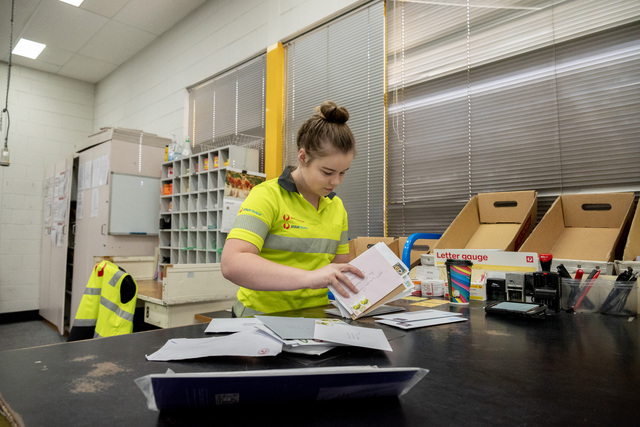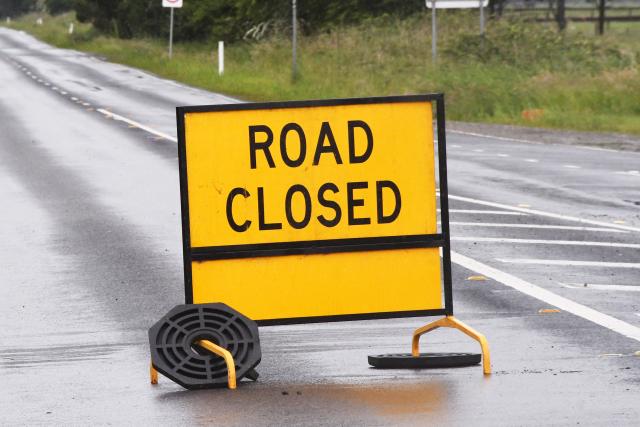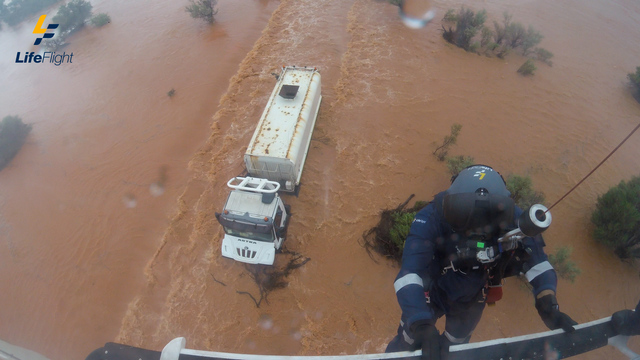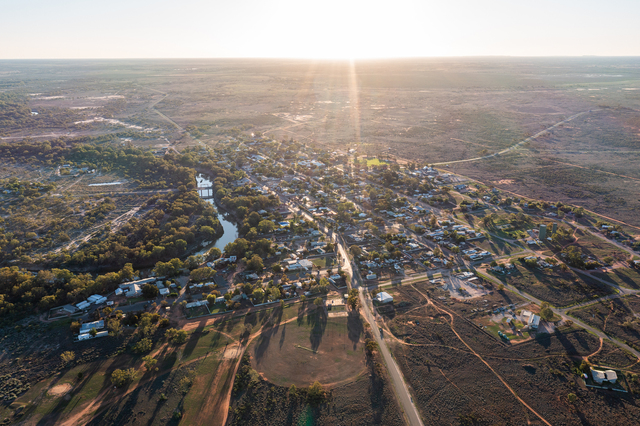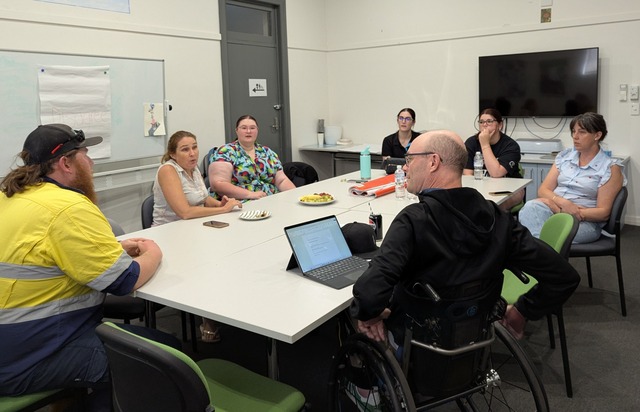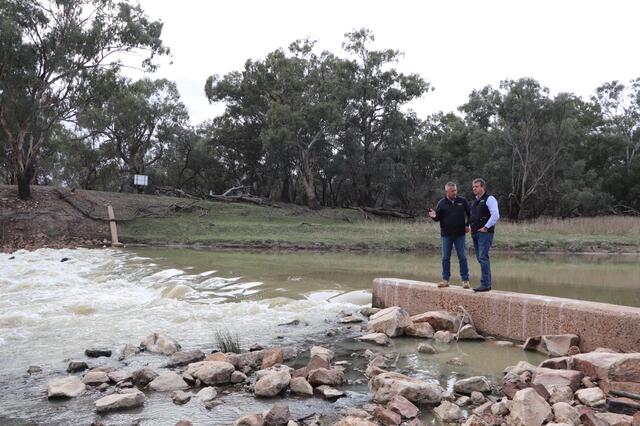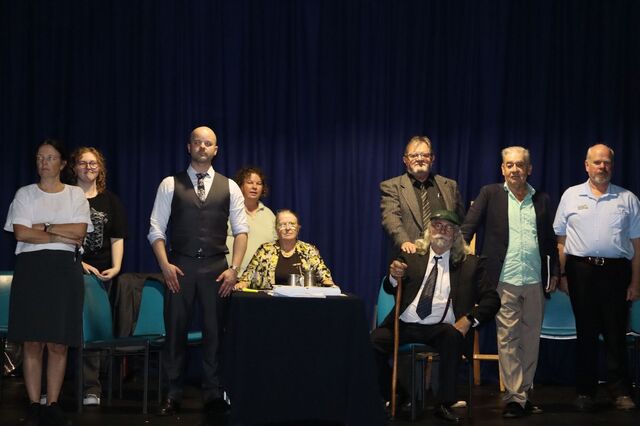THE political marriage of the National and Liberal parties, known as the Coalition, is over at the federal level.
The split was announced by the group’s junior partner leader David Littleproud on Tuesday.
Recently elected National Party Member for Parkes, Jamie Chaffey, said the split was about principles and a refusal by the new Opposition to double down on policies taken to May’s election.
“As a new member of The Nationals’ party room, I couldn’t support a position to walk away from policies that we took to the election, just weeks ago, that were supported by the Parkes electorate as shown by my resounding result, simply to stay in a Coalition with The Liberal Party, who don’t know what policies they do or will support,” he said.
“That would be unfair to our National Party members, supporters, and those who voted for The Nationals.
“I strongly believe The Nationals are the only party that truly represents regional Australia, and we proved today that we won’t back down, and we won’t apologise for standing up for what we believe in.
“It is unfortunate that we are in this position after such a long history with The Liberal Party, but I firmly believe that The Nationals have made the right decision, and we must stand by these policies to truly represent the people of the Parkes electorate and regional Australia.
“I do hope that this isn’t a long-term arrangement as the country needs a united Opposition to hold the Labor Government accountable, but not at the cost of the people that we represent.”
Hours after the Nationals’ split, a joint statement issued by recently elected Opposition Leader and Member for Farrer Sussan Ley, her deputy Ted O’Brien, and the Senate leadership team of Michaelia Cash and Anne Ruston said the move to not instantly reaffirm on some policies taken to May’s election were part of a post defeat review.
“The Nationals sought commitments on specific policies,” the statement said.
“As was explained to The Nationals, the Liberal Party’s review of election policies was not an indication that any one of them would be abandoned, nor that every single one would be adopted.
“We offered to work constructively with The Nationals, respecting the party’s deeply held views on these issues.
“We asked The National Party to work constructively with us, respecting our internal processes.
“In good faith, the Liberals proposed appointing a joint Coalition Shadow Ministry now, with separate policy development in each party room and subsequent joint policy positions determined in the usual way.
“Unfortunately, The Nationals determined this was not possible.”
The Liberal Party also insisted that Shadow Cabinet solidarity be maintained in any Coalition Agreement.
“This was not explicitly agreed to by The Nationals.”
The leadership foursome lamented the departure of the National Party from the Coalition.
“Whilst we have enormous respect for David Littleproud and his team, it is disappointing that the National Party has taken the decision to leave the Coalition today,” their statement said.
“As Liberals, we respect their decision and commit to continue working collaboratively with them.
“The Liberal Party’s door remains open to The Nationals should they wish to rejoin the Coalition before the next election.”
Mr Littleproud said the decision to move away from the Coalition agreement was about principals.
“During the last term of Parliament, The Nationals fought hard for a package of sensible and important policies that will benefit regional Australia and the future of our nation,” he said.
“These were adopted as Coalition policies and were strongly supported by local communities.
“We will not walk away from the $20 billion Regional Australia Future Fund, which would provide up to $1 billion extra funding every year for regional projects, from improving access to better health, child and aged care, through to fixing local roads and building new sporting facilities.
“We will not walk away from ‘big stick’ divestiture competition laws that keep the big supermarkets honest and deliver fairer prices for farmers at the farmgate and families at the checkout.
“We will not walk away from an improved Universal Service Obligation for communications, forcing a better minimum standard for regional mobile and internet access.
“We will not walk away from the potential of nuclear power as a necessary element of a balanced energy mix that secures Australia’s energy security.”
First formed in 1923 as the Nationalist/Country Party Coalition, the following century saw a number of breakups between the subsequent iterations of the two parties and their partnership.
The last time a formal separation occurred was 1975.
At this month’s Federal election, the Nationals had nine lower house members elected in their own right, while the Liberal Party had 18 members elected.
In Queensland the parties are formally joined as the single Liberal National Party, or LNP where they jointly claimed 16 seats,
Monash University’s head of politics Dr Zareh Ghazarian said like any divorce, the Coalition’s spilt could be messy.
“The Liberals and Nationals have always been separate parties who have worked co-operatively together, and we have seen cases at a state level where coalition agreements have been dissolved,” he said.
“But we also see perennially that the question comes up on whether these parties should formally merge, and we’ve seen that happen with the LNP in Queensland, so it will be interesting to see how the new arrangement plays out in practice.
“What we do know is that the Liberals will continue to be recognised as the official Opposition, as the party with the second highest representation, and there are funding and shadow Cabinet entitlements that come with that.”
Yet, Dr Ghazarian also said the change could be beneficial to both parties.
“In effect, the dissolution of the Coalition agreement is going to potentially liberate both the Liberal and National parties, for the time being, to get their policy settings in order,” he said.
“Obviously this is a really significant point in time for the future of the Liberal Party.
“To examine the decision we need to be looking at how the parties performed at the election. The Nationals held ground generally, while the Liberals went backwards.
“So the Nationals are probably feeling a bit emboldened that they have got the constituency behind them.
“The Liberals, on the other hand, are really struggling, so this will give them some time to recalibrate as they move towards the future.”

